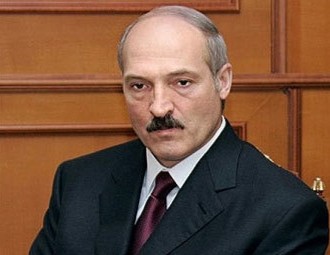During his campaign the incumbent president refrains from paternalistic rhetoric and populism

Lukashenka is likely to use vague ideological slogans about building independent Belarus, ensuring security amid Ukrainian conflict, and avoid promises about the growth of people’s living standards.
Amid the ever lowest political activity in Belarus, the Belarusian authorities are set to ensure that President Lukashenka wins to serve his fifth term. The authorities have refrained from paternalistic rhetoric and are seeking ways to limit the criticism of the state’s social and economic policy by alternative candidates. The authorities are likely to start mobilization through the media and administrative resource a few weeks before the election date in order to ensure the required turnout.
According to the Central Election Commission, Alexander Lukashenka’s team collected 1.7 million valid signatures in support of the incumbent president.
The 2015 presidential campaign is taking place against the backdrop of political apathy among electorate and the authorities have not undertaken any measures to boost people’s interest in the elections. The authorities probably fear that people’s discontent with the existing social and economic policies could translate into political demands and an increase in protest activity.
Interestingly, the incumbent president has been avoiding public statements and evaluations about the ongoing campaign. Only a month or so until the election date, yet President Lukashenka has not issued a decree to convene the All-Belarusian People’s Assembly, which is one of the major mobilization mechanisms in support of the incumbent president. As a rule, at the past assemblies candidate Lukashenka presented his election programme and outlined socio-economic policies for the next five years. This time, however, the Belarusian government cannot guarantee better living standards for the population in the coming years. Moreover, the authorities could not prevent the Belarusian ruble depreciation and a decline in the living standards of the population already during the 2015 presidential campaign.
It is a curious coincidence that the authorities have released one of the most determined opponents of Lukashenka, Mikola Statkevich, immediately after it became clear that two opposition candidates – Liabedzka, the United Civic Party leader and Kaliakin, the ‘Fair World’ leader – would not participate in the presidential race. Shortly after his release, Statkevich proposed a strategy of ignoring the 2015 elections, which had narrowed the opposition’s abilities to convey their messages to the electorate and would hardly boost political activity in society.
Central Electoral Commission head Jarmoshyna has made several statements about the likely number of candidates on the ballots in the presidential race – yet during and before the nomination stage. Probably, the Belarusian authorities anticipated registering all five candidates, who had submitted the required number of signatures in support of their nomination to the constituency commissions. For instance, a few days before the scandal with poisoning of Vladimir Tereshchenko and rejection of his signature sheets by constituency election commissions, Jarmoshyna optimistically said, “I hope that we register all five potential contenders. The more candidates, the more interesting elections are”.
However, the authorities were prompted to revise the initial scenario of the presidential campaign, and had not registered economist Vladimir Tereshchenko as a candidate, even though he avoided direct criticism of President Lukashenka.
During the campaigning stage, the incumbent president is likely to use vague ideological slogans about building independent Belarus and ensuring security amid the conflict in Ukraine. In addition, he is likely to avoid any promises about the growth of people’s living standards in the next five years.
-
03.01
-
07.10
-
22.09
-
17.08
-
12.08
-
30.09








































